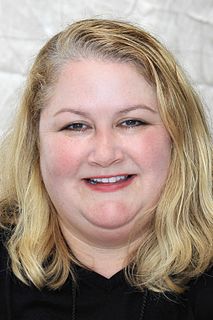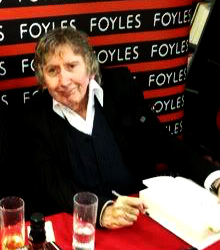A Quote by Rachel Cohn
I particularly loved the adjective bookish, which I found other people used about as often as ramrod or chum or teetotaler.
Related Quotes
His parents never talked about how they met, but when Park was younger, he used to try to imagine it. He loved how much they loved each other. It was the thing he thought about when he woke up scared in the middle of the night. Not that they loved him--they were his parents, they had to love him. That they loved each other. They didn't have to do that.
There's this pet phrase about writing that is bandied around particularly in workshops about "finding your own voice as a poet", which I suppose means that you come out from under the direct influence of other poets and have perhaps found a way to combine those influences so that it appears to be your own voice.
I loved doing problems in school. I'd take them home and make up new ones of my own. But the best problem I ever found, I found in my local public library. I was just browsing through the section of math books and I found this one book, which was all about one particular problem - Fermat's Last Theorem.
But whenever one meets modern thinkers (as one often does) progressing toward a madhouse, one always finds, on inquiry, that they have just had a splendid escape from another madhouse. Thus, hundreds of people become Socialists, not because they have tried Socialism and found it nice, but because they have tried Individualism and found it particularly nasty.



































